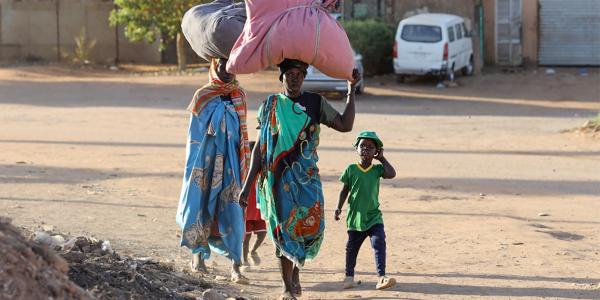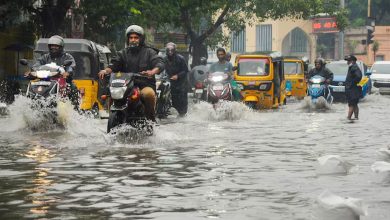FIGHTING IN SUDAN RAPIDLY WORSENING AN ALREADY DIRE HUMANITARIAN SITUATION FOR CHILDREN, WARN UNICEF, SAVE THE CHILDREN AND WORLD VISION
Syed Azam
As fierce conflicts in Sudan proceed, UNICEF and the kid centered NGOs World Vision and Save the Youngsters are featuring the risk to kids in the event that the current truce isn’t regarded by all gatherings. Humanitarian assistance is required right away for millions of vulnerable girls and boys, and all children must be shielded from harm.
During the fighting that broke out on April 15, 2023, at least nine children are said to have been killed, and more than 50 others have been injured.
Children are being displaced as a result of the conflict, which also increases their vulnerability to serious violations like sexual violence and recruitment and use by armed groups.
The World Health Organization says that the violence has had a big impact on health care. One third of Sudan’s hospitals are no longer open, preventing children and their families from getting the care they need.
The virus chain that keeps immunizations reasonable has been impacted by consistent cuts in power and fuel – jeopardizing the existences of millions of youngsters in a nation where immunization rates were at that point falling and where kids face standard sickness flare-ups. Millions of undervaccinated or zero-dose children will not receive life-saving vaccines, putting them at risk for deadly diseases like polio and measles.
World Vision Sudan Country Director Emmanuel Isch stated, “If children do not get access to food and nutrition assistance, they are at risk of dying or suffering physical and developmental harm.” Without harmony, conveying food help and sustenance backing to incredibly weak young ladies and young men and their networks turns out to be significantly more troublesome.”
Children were the most in need of humanitarian assistance in Sudan prior to the outbreak of the current conflict. A few 15.8 million individuals needed compassionate support, including more than 8.5 million kids. Child malnutrition rates in Sudan are among the highest in the world. An estimated 50,000 children with severe acute malnutrition (SAM) who are currently enrolled in treatment programs have had their life-saving treatment disrupted as a result of the crisis. If aid is not immediately restarted, those children could die, and malnutrition rates will rise.
Mandeep O’Brien, the UNICEF representative in Sudan, stated, “Children are bearing the brunt of the conflict in Sudan.” Their futures are being taken away from them as they pass away. The effects of keeping weak youngsters from getting wellbeing, security and schooling administrations will endure forever. We must end the fighting immediately to better reach all vulnerable children wherever they are.
Arshad Malik, Save the Children’s Sudan Country Director, stated, “Even before the current crisis, 7 million children in Sudan were not enrolled in school and 2.7 million children were living with malnutrition.” The full harm to wellbeing offices and schools is at this point unclear. Because their lives are in danger, we must urgently ensure that all children have access to food, water, and medical care.
School terminations have constrained millions out of their homerooms – leaving one out of three young ladies and one out of four young men incapable to learn. Additionally, children were struggling with inadequate education. Approximately 70% of ten-year-olds cannot read.
The three organizations are deeply concerned about the effects that prolonged conflict has on children and urgently appeal to all parties to the conflict as well as the international community to do more to protect Sudan’s children, including:
- Maintaining and respecting the ceasefire, and ensuring that humanitarian support can be restored. Humanitarian activities have been interrupted in many states due to widespread violence and insecurity. World Vision, UNICEF and Save the Children facilities are among those that have been broken into and supplies stolen. All parties to the conflict should guarantee the safety of humanitarians and allow them to reach children and their families with urgent health, nutrition, protection, and education services, without fear of violence or obstruction.
- All parties to the conflict should embrace peace for children in Sudan and reopen schools. Schools are not just learning spaces for children, but also safe spaces that protect them from abuse and exploitation, including recruitment from armed groups. For every day that children remain out of school, the chance of them ultimately returning are low, especially for girls. The learning crisis in Sudan is becoming a generational catastrophe and requires urgent action.
- All parties should protect children and prevent the recruitment and use of children. The recruitment and use of children by armed forces and groups leads to severe, long-lasting exposure to physical and psychological traumatic events.





